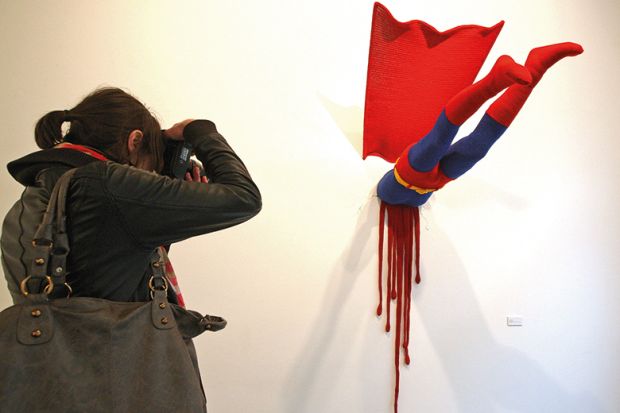University leaders are unlikely to succeed if they adopt the “heroic leadership” approach favoured by sports teams, a Formula One boss turned vice-chancellor has argued.
Nigel Carrington, who has been vice-chancellor of the University of the Arts London since 2008, told Advance HE’s leadership summit in London that the model of “heroic leadership”, in which a charismatic figurehead inspires the workforce to embrace their values and goals, would not work in higher education.
However, this leadership model was often used at sports teams – including the McLaren Formula One racing team, where Mr Carrington was managing director and deputy chairman of the parent company, McLaren Group, before joining UAL.
“It’s something you see at a lot of football clubs, and when it works it is fine; but when it doesn’t, there is only one way to go – get rid of the leader,” he explained.
Instead, university heads should embrace the “consensual” model of leadership used by City law firms run by partners, said Mr Carrington, who was also previously managing partner of the multinational law firm Baker McKenzie.
“Academics are very like lawyers – individualistic, strong, wilful, obstructive and driven by their own desire to be the best in their field,” Mr Carrington explained.
“You get elected managing partner because people believe you will plug into the values of the firm,” he said, adding that vice-chancellors also had to “recognise that [their] values are not quite as strong as the values of [their] staff”.
Seeking to impose a vision that was out of step with academics’ values would not work, he added.
“They will not follow you because of your values but because you tap into their values and interpret them in a way that allows [the university] to become a better institution,” Mr Carrington said.
“We need to recognise that those value are not ‘business-like’ but will occur in an environment that is forcing us to become more business-minded.”
University leaders would succeed by “showing we are willing to listen” and “empathising with the goals of the sector”, argued Mr Carrington, who said that a dictatorial approach would not work.
“If you pull a lever [to instigate change], nothing will happen unless the people at the other end believe in it,” he said.
The Advance HE summit also heard from Sue Rigby, vice-chancellor of Bath Spa University, and Mike Thomas, vice-chancellor of the University of Central Lancashire, who said that his time in the military had made him sceptical of heroic leadership.
“I served five years on submarines, and one of our training scenarios was about who would you follow out of the foxhole [under fire],” said Professor Thomas, who concluded that he would not want to follow anyone who suggested a gung-ho option.
That also applied to business, added Professor Thomas, claiming that research had shown that many firms led by “heroic” leaders had failed following the 2008 financial crash.
“It was companies with quite uncharismatic leaders who survived and the others failed,” he said.
Register to continue
Why register?
- Registration is free and only takes a moment
- Once registered, you can read 3 articles a month
- Sign up for our newsletter
Subscribe
Or subscribe for unlimited access to:
- Unlimited access to news, views, insights & reviews
- Digital editions
- Digital access to THE’s university and college rankings analysis
Already registered or a current subscriber? Login








